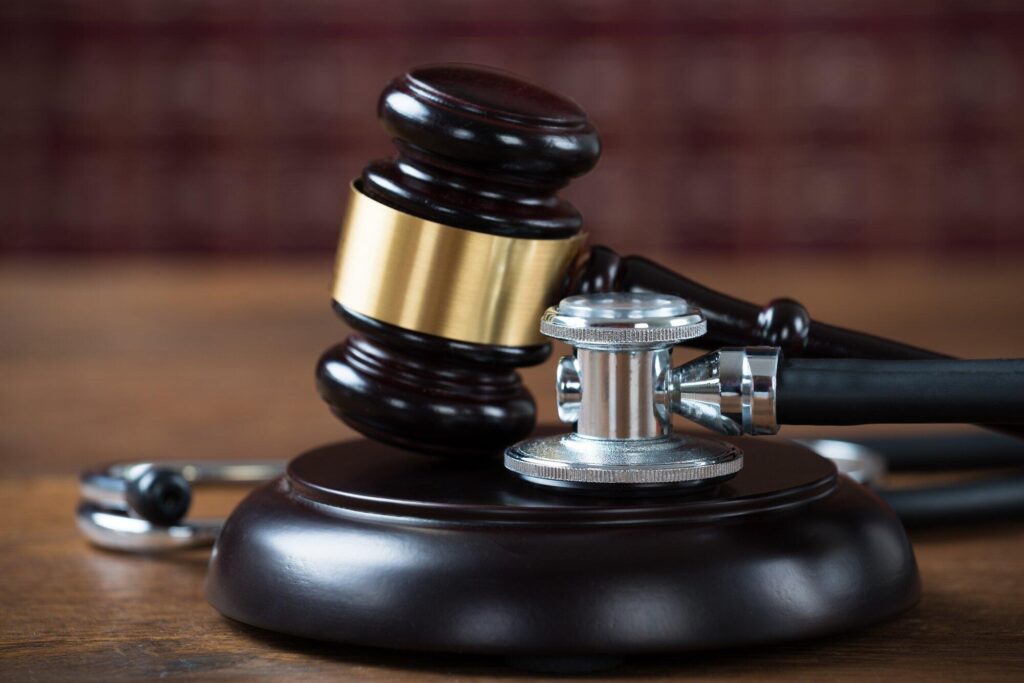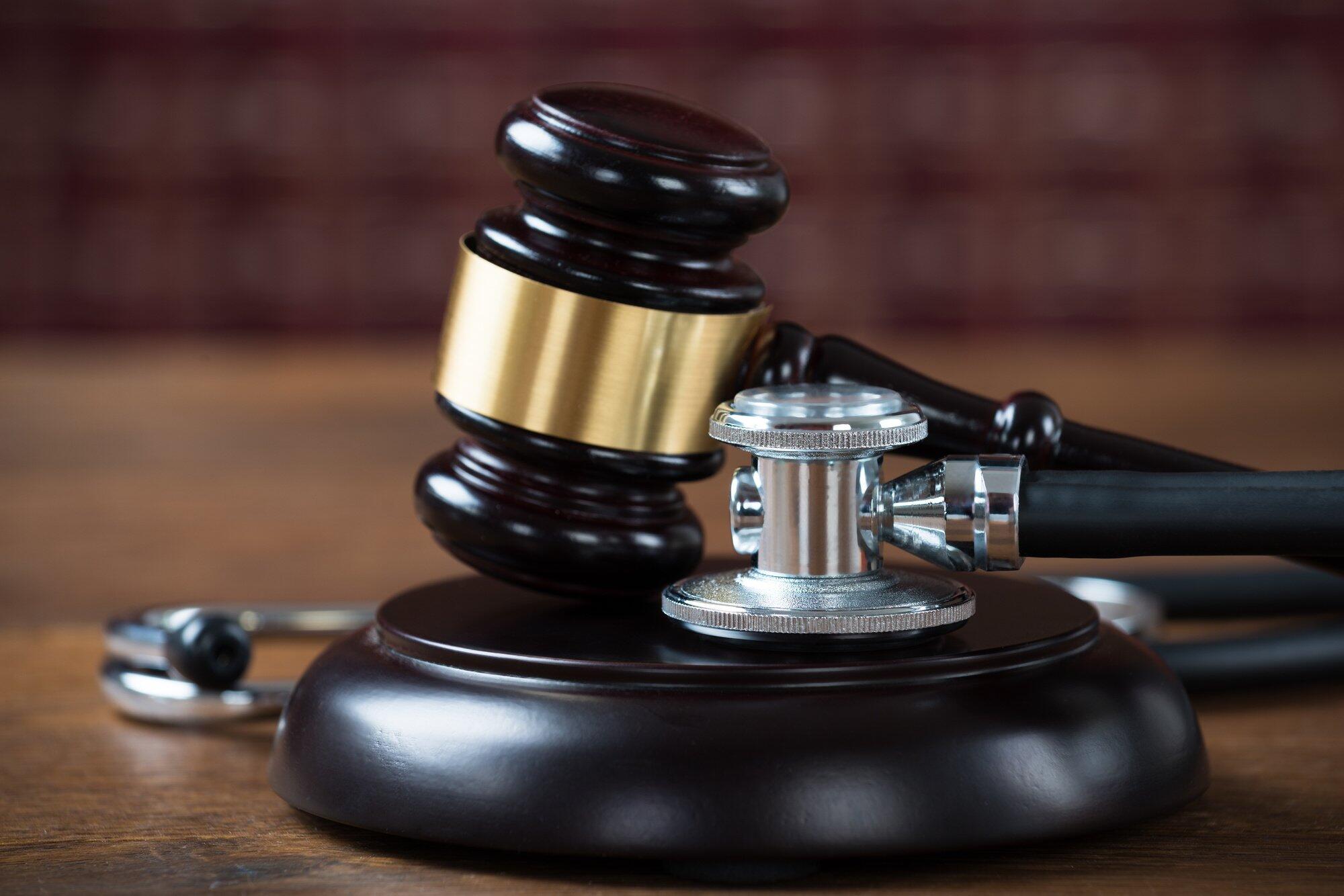
If you have suffered a personal injury as a result of a car accident in Virginia, you may be entitled to compensation. Once you file a claim with the at-fault party’s insurance company, you will either settle your case or take it to court.
The timeline of this process is variable, affected by unique circumstances of your claim. In this post, we will answer the question: “How long does a personal injury claim take?” Below is a discussion of some of the things you need to know and how an attorney can help.
Statute of Limitations
A personal injury claim can arise when someone else’s negligence causes you harm. Common examples include automobile accidents and slip-and-fall accidents.
In most cases in Virginia, you have two years from the date your accident or incident occurred to file a personal injury lawsuit. This is known as the statute of limitations, defined by the Code of Virginia, Title 8.01: Civil Remedies and Procedure, Chapter 4: Limitations of Actions. You can read the full text of the law here.
This law is generally rigid, and the court is unlikely to grant an adjustment or extension if you fail to file your lawsuit by the deadline. The legal term for suspending or delaying this deadline is tolling and it only occurs under special circumstances.
Waiting too long could mean forfeiting your right to compensation, so it is important to file your lawsuit promptly. A personal injury lawyer will make sure you do so on time.
Stages of a Personal Injury Case
Meeting the statute of limitations is only one of numerous considerations when making a personal injury claim. Below is a discussion of the evolution of a personal injury claim.
Receiving Medical Attention
The first thing you should do following a personal injury is seek medical attention. This is true even if you do not feel any immediate pain or discomfort. Many soft-tissue injuries, such as whiplash, can take a few days to manifest.
The reason for your visit is two-fold. First, you need to seek the advice of a physician to help you heal from your injuries. Depending on your condition, you may require follow-up office visits, surgeries, physical therapy, prescription medication, or a combination of these treatments.
Second, this visit also serves as the first form of evidence in your case. Your medical records create a timeline of events, linking your injury to the event that caused it. If you are seeking compensation, you will need to show how you were injured and what treatment you sought.
Ideally, this visit will take place immediately following the injury or shortly thereafter. Waiting too long could raise doubt about your claim, making it harder to prove that your injury is related to the accident.
Hiring a Personal Injury Attorney
Once you have consulted with a doctor, your next step is to hire a personal injury attorney. This is a delicate and overwhelming time, and you need a lawyer who is well-versed in Virginia personal injury law.
One of the first ways a personal injury attorney can help is by communicating with the at-fault party’s insurance company on your behalf. While you may think that you are capable of handling this step on your own, an unrepresented person is at risk of accepting an offer too quickly and/or for an amount that is too low. Your personal injury lawyer will know how to handle the negotiations, ensuring that you receive the compensation that you deserve.
Investigating Your Claim
To build your case, your lawyer will need to know as much about the accident and your injuries as possible. To start, the lawyer will review all of the evidence you have regarding the accident and your injury, including:
- Photos and videos of the scene
- Eyewitness statements
- Police report
- Medical records
Then, your lawyer will investigate your claim by interviewing witnesses, taking photographs of the vehicles involved in the accident and the injuries you sustained, and collecting relevant documents such as medical records, bills, accident reports, and lost wage information.
Beginning Negotiations
When the investigation is complete, your lawyer will contact the insurance company regarding potential settlement by submitting a formal demand letter. This letter will describe the accident, your injuries, your treatment, and any disability you suffered; quantify your claimed medical bills and lost wages; and make a demand for a settlement amount. Most personal injury cases are concluded by settlement without the need for a lawsuit, which saves the client time and money. However, if the insurance company denies the claim or is unwilling to pay the fair value of the claim, a lawsuit will have to be filed.
Filing a Lawsuit
If the insurance company denies your claim or is unwilling to pay its fair value, then a lawsuit will have to be filed. Lawsuits are time consuming and expensive, sometimes taking years and costing thousands of dollars. Negotiations usually occur throughout the life of a lawsuit, meaning settlement can occur at any time, but if your case cannot be settled, it will ultimately have to be taken to trial.
Formal Discovery
Filing a lawsuit sets the formal discovery stage in motion. During this time, written questions are answered by the parties, copies of relevant documents are exchanged, documents are subpoenaed from third parties, and people with relevant information are deposed. The discovery stage can be lengthy, but it is necessary. During this time, each side learns about the allegations made by the other parties and collects necessary information in preparation for trial.
Taking the Case to Trial
Most personal injury cases are settled outside of the courtroom, but when the parties are unable to reach a settlement, the case will go to trial. At trial, each side will examine witnesses, introduce photographs and other documents into evidence, and make arguments. At the conclusion of the evidence and the arguments, the judge or jury, depending on the court the case is filed in, will make a decision as to the amount of compensation you are entitled to.
How a Personal Injury Lawyer Can Help
As you can see, the personal injury claim timeline is not cut and dry. Many variables will affect how long it takes, from the nature of the injury to the length of the negotiation phase and whether or not the case goes to trial.
Your lawyer will assist in every aspect of your case, from the initial phone consultation all the way through the lawsuit, trial, and appeal (if required). While you can choose to represent yourself, this is not advised. Personal injury claims are complex, and an injured person needs an experienced attorney to ensure fair compensation.
How Long Does a Personal Injury Lawsuit Take?
There is no one-size-fits-all answer to the question: “How long does a personal injury claim take?” Depending on the factors above, it could take a few months to a few years to complete.
While you might not be able to control every aspect of this timeline, one decision can accelerate the schedule and help you avoid costly and time-consuming setbacks: hiring a personal injury lawyer.
At Preston, Wilson & Crandley, PLC, our attorneys have the knowledge and experience to put your personal injury claim in the best position for success.
Contact us today to schedule a consultation and learn more about the services we provide.

